We met Olha in a small cafe in Lviv. Olha is a young beautiful woman with dark hair and brown eyes. She is the founder of the Oxford Ukraine, the English Language Study Center, and a member of the Mariupol City Council. On 15 March, she, her husband Dmytrо, and a cat fled through a green corridor from the city that is being mercilessly bombed by the Russian military.
Olha talks about Mariupol with such love that you can think it is a paradise. Even describing three weeks of living in the basement, Olha does not cry. Tears gathered in her eyes only when she remembered Mariupol before the bombing. When Olya talks about parks, cafes, bike paths, shops, Drama Theater, and a swimming pool still safe and sound. About the people who, over the last eight years, have transformed Mariupol from a depressed industrial district center into a city for living.
Above all now, Olha wants to evacuate her mother, who still remains in Mariupol. Also, she wants to tell everyone about her life and the lives of another half a million Mariupol residents until 24 February 2022. So that the whole world knows what Russian troops have done to the city and why it is impossible to forgive.
We have to listen to her.
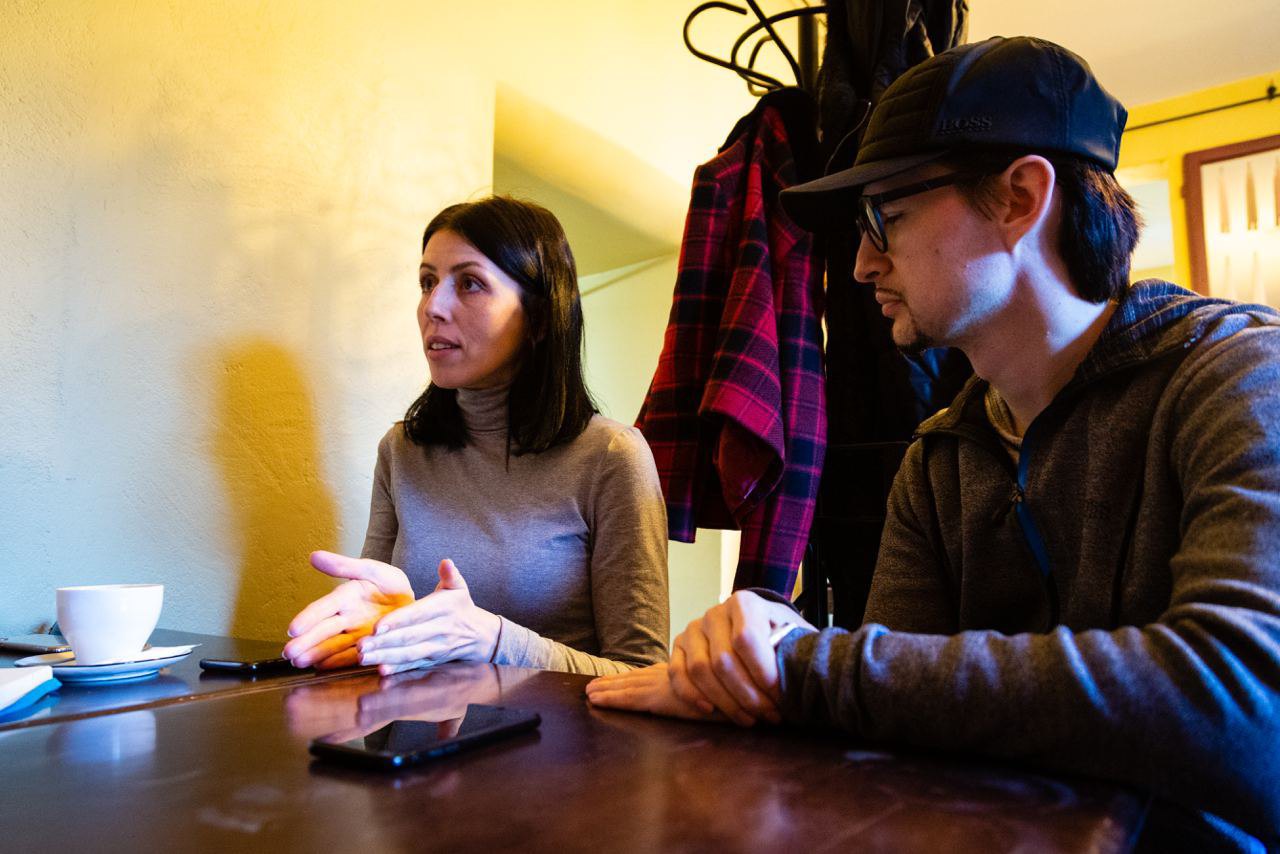
A city for living
I was born in Donetsk but spent all my life in Mariupol. One hundred kilometers is between these two cities. After Donetsk was occupied [by russians], many people kept coming to Mariupol to buy some things in shopping malls, to visit relatives. But until 2014, Mariupol – as compared to Donetsk – was a depressing city with corrupt authorities sandwiched between two factories. That is why we wanted Mariupol to become a showcase of the restored Donbas, a symbol of Ukraine. It was necessary to make sure that people from the territories not under Ukraine’s control, who were continuously fed by Russian propaganda, see the difference between Donetsk then and Mariupol, being depressing once.
After the Russians shelled the Left Bank and Eastern districts in January 2015, Mariupol residents have become accustomed to fighting. People bought apartments and made repairs there even in those districts. We heard the sounds of war and understood that the fighting was somewhere close to us, but we compared ourselves to Israel. We believed that to ensure Mariupol is a peaceful place, we needed to strengthen the city not only from the outside but also from the inside. We got accustomed to war, although it meant falling into a very terrible habit.
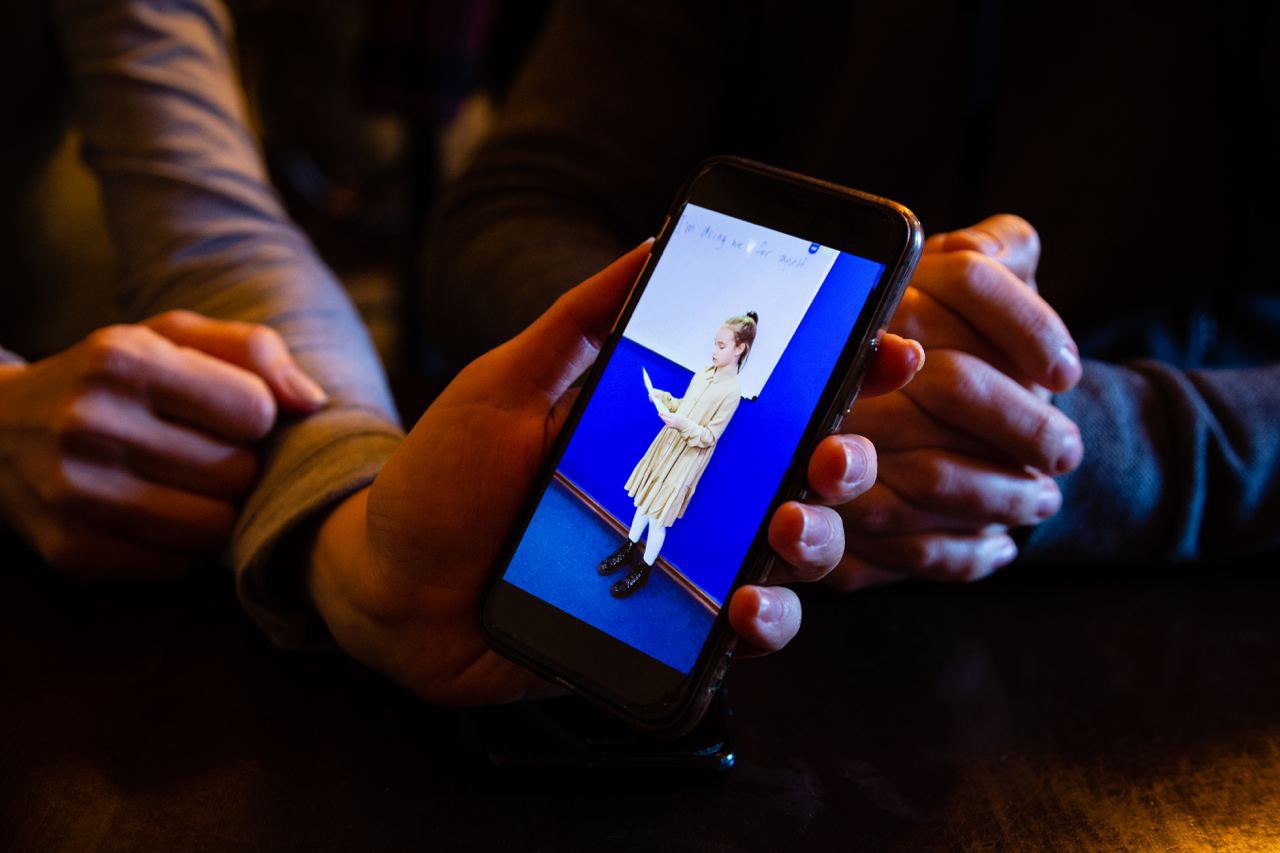
The city has been constantly changing for the last eight years. In 2015, a new team entered the City Hall, of which I am a part. We have adopted a strategy for the city’s development until 2021 and have launched international investments. At that time, 500,000 people lived in Mariupol, and another 100,000 internally displaced persons came from the occupied territories. We launched reforms in education, medicine, created career opportunities for young people, launched condominium programs, repaired hospitals, kindergartens, schools, built parks with lawns and bike paths, and held art festivals. The city bought a completely new public transport fleet, which now is used to block roads from tanks.
In 2021, Mariupol became a real European city. I lived in the area with a modern school no. 66 next to my house, better than many private schools in Kyiv. There was a giant Gurov Park, theater public garden, restored hospital, maternity hospital, clinic, new store within ten minutes’ walk from my home as well as a public transport stop, and a bunch of cafes.
People finally felt life. Even those who had never been to Europe could find it here. If earlier young people were ashamed to say that they came from Mariupol, now it is a pride to be a Mariupol resident.
On 23 February 2022, we held a session of the City Council. We talked about the funding to be allocated for a new park in the Prymorsky District, allocated money for the construction of an urban park for young people, and argued about what the center of public initiatives should look like. The city embankment should have been repaired by the summer. The Neptune swimming pool, which has now been bombed, was to open on 2 March.
Since 2014, we have been intimidated by the fact that soon the DPR is going to take over Mariupol. We understood everything, there was tension, people were leaving the city and coming back, leaving and coming back. And then they got tired. When Russia shelled the Left Bank in February 2022, we thought, OK, we had already seen that before. We thought they would never proceed.
War again
I have a hard time remembering 24 February because several days merged into one. We woke up to loud shots. I surfed the Internet and saw that the war had begun. I jumped out of the house. There was a loud explosion – as it turned out later, it was our air defense forces shooting down a ballistic missile. Many neighbors began to get packed and leave. The Left Bank and Sartana had already been heavily shelled.
I ran to work because it's an instinct – when you're a leader, you run to your team by force of habit like a great mom. My school employs are more than 30 people. There are 400 students. I tried to organize a team, but I was confused. How can it be, a war of that scale? This cannot happen in a European country.
The first two days merged into one. We stood in a giant queue at the gas station. Then we went to the store to buy basic food for two days. I tried not to scoop up things, not to spread panic. People were noticing that we didn’t buy much and calmed down a little too.
I remember meeting a girl from Syria in 2014. She said that we did not have a war yet. And I thought, well, the Russians were shelling Donetsk, wasn’t it a war? But on 25 February air bombs were dropped on Mariupol, and I understood the difference. In two days the situation had deteriorated significantly.
First, the light went out. After a while, it reappeared, the Internet was restored. We called colleagues and relatives to discuss an action plan. Everyone was still hoping for a diplomatic solution to the issue. Then the power disappeared completely. The looting started in the shops because the alarm systems would not work. First, pharmacies and groceries were looted, then the rest of the stores. By inertia, the markets were still working, and it was possible to stand in a kilometer queue to buy expired cheese or some potatoes.
For three weeks, people ate and drank what they had bought before - medicines, food, and water disappeared from sale. While refrigerators did not work because there was no light, food was stored on balconies, windowsills, and bags were hanging from windows. One day it was warm, and some products went bad.
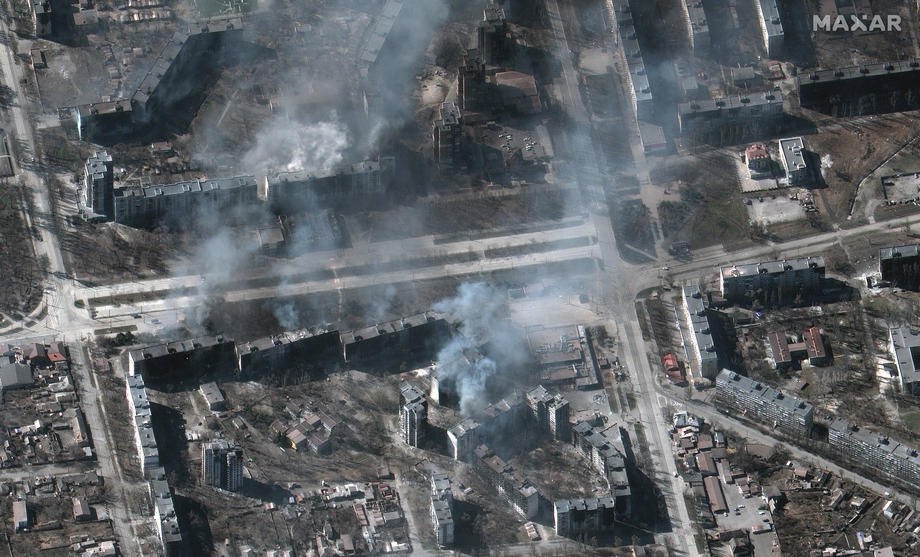
Then the water and communication were cut off. And immediately after, the intense shelling started. At first, the Russians fired on each district separately, and then on all districts at once. But we had to look for water. We went from well to well under the shelling because we didn't know exactly where the drinking water was to be delivered as there was no communication. Then the water began to be delivered by cars, one UNICEF car and another, a scary and old car fetched by Vodokanal (translator’s note – a public corporation responsible for water supply and sanitation). The water there was rusty and dirty, so-called service water.
Earlier, Happy animals, the municipal enterprise that worked in Mariupol, were engaged in the chipping of dogs, sterilization of cats. But the animal feed ran out very quickly. The enterprise had to let some of the animals out onto the streets. Moreover, as long as all municipal vehicles were used for military needs, garbage was no longer taken out of the yards. Homeless animals and former domestic cats and dogs actually scrabbled about in that garbage. I felt very sorry for them but there was a lack of food. Later, we saw that people started scrabbling about in the garbage.
Since there was no light and no communication, long queues became the only source of information. People in the queues joked:
- It will be good weather tomorrow.
- How did you find out? Have you read on the Internet? – and everyone laughed.
The gas was last to disappear, and it became cold in the houses. One airstrike - and every house in the area remains without windows at once. It was -8℃ outside. People went outside and patched some improvised stoves together. They were cooking food on hearths. They cut trees in the yards for firewood.
The city was on fire, smog from ashes and gunpowder was everywhere. You could only move on foot. First, there were rumors that the Russians took away cars. Secondly, it was easier to maneuver on foot in case of airstrikes. It was easier to run somewhere to the basement or just fall to the ground when you hear the sound of an airplane. Everyone learned to fall very quickly. So people walked dirty in the dust, they didn’t wash their hair for twenty days, because once you were washing up and then suddenly you had to run to the shelter. They learned to wash with half a cup of cold water.
The first couple of days, we spent nights at home. Only when the Russians intensified the shelling, we did move to shelters. The shelter was at a neighboring house. It was a large basement of about 25 rooms of 20 to 30 square meters each and a corridor of 200 square meters, and there was another basement of some beauty salon. At first, people from the Left Bank district settled there, as they had nowhere to go. Then, people from the house, in which the basement was located, joined them at night. Then, people from neighboring houses came. Eventually, there was no free room at all, as many houses had been damaged.
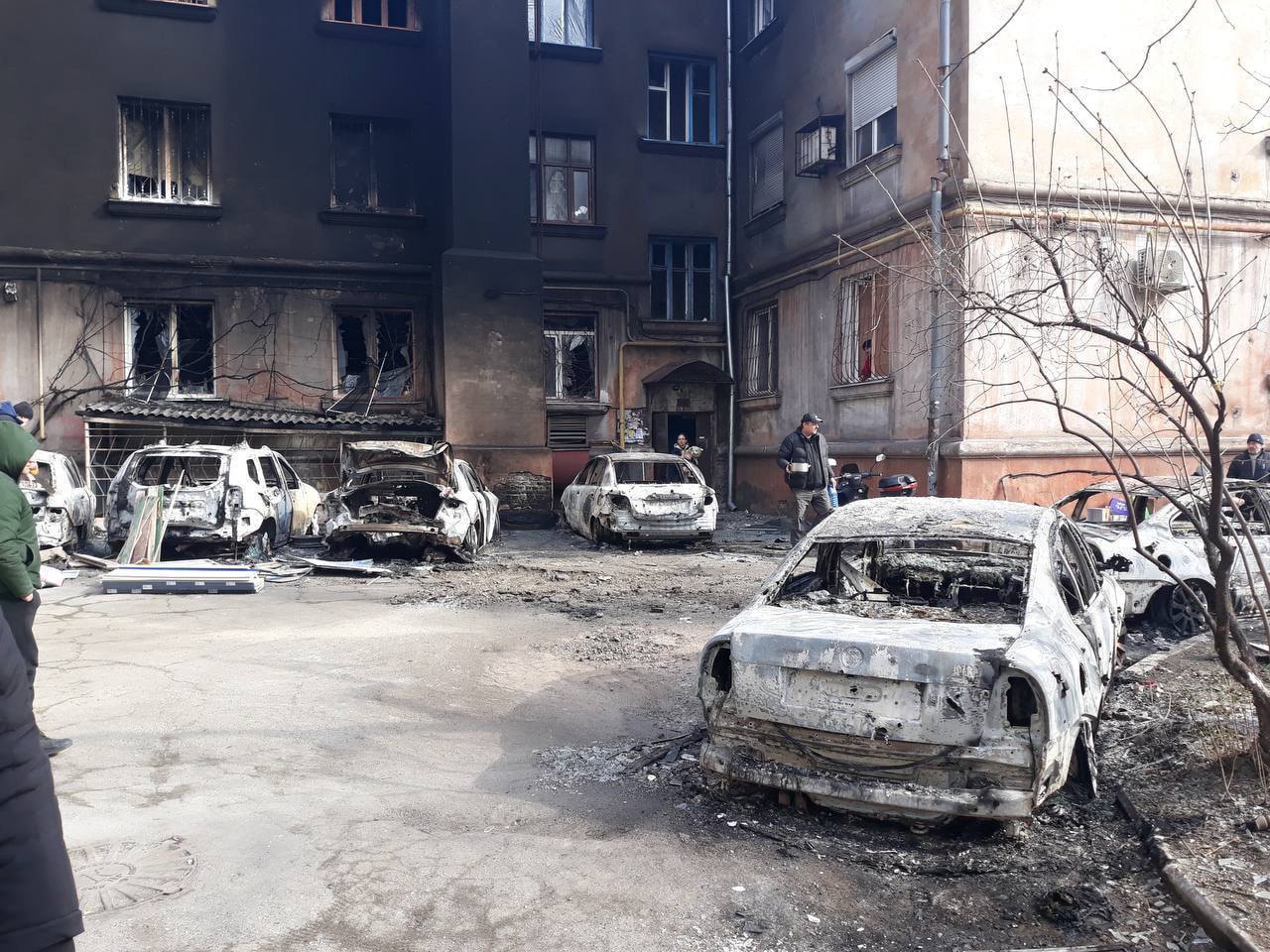
People staying in the basement kept asking: how long would it last? Two days? Three? No one thought it would last for weeks. The tension was gradually increasing. Especially when new people were coming. I will not say that such was the case everywhere because all people are different. But when, for example, we came to a shelter near our house, there were already residents who decided to live in the basement themselves, they wanted to put a lock to keep other people from nearby houses away. I said that now there was a war, everything had to be common. The basement would be the shelter for as many people as needed to hide everyone. We were sharing blankets and bedspreads. That was what everyone did. And there were no unpleasant moments then.
A few days ago, I saw some photos of bombs that hit that house. The higher floors were damaged, so I hope the people in the basement did survive.
My mother also lives in Mariupol but in a different area. First, I was calling her regularly. When the connection was lost, I visited her several times. It took about an hour and a half to reach her place on foot. I brought her food. Then, her area was targeted first and later ours.
The last time I spoke to her on the phone was on 5 March. She has a 15-year-old cat there, which she adores. Before the war, my mother constantly fed cats in her area. Many years ago, she had a stroke and was paralyzed. I took care of her. When my mother got better, she began to see other people with the same diagnosis. Then she was diagnosed with cancer three years ago, and it was only in January this year that we finally rejoiced that the disease had gone into remission. I forced her to take tests every month – and every time I thanked God for every month of her life.
Now her area is already occupied, so they have stopped firing there, but it doesn’t mean anything yet. Acquaintances of my acquaintances said that they saw my mum alive two days ago. This is the most important thing.
The daily routine looked as follows: in the morning you wake up, go for water and food. Along the way you see one elderly woman, then another one, they are sitting, they have no strength to go. Their bottles of water are empty. You take the bottles and go to the well. Finally, when it\'s your turn, you pour water into five big bottles. It takes a long time. People in the queue are getting nervous because the shelling does not stop. Hit, hit, hit.
We took about the same route every day on the street. We took a close look at the buildings. Initially, some houses were damaged. The next day there were more of them. Then you suddenly notice that the same beautiful school no.66 is no longer there. It was a symbol of some stability for us. But one missile - and it has gone, while house balconies have got curved, and windows have been broken in the nearby buildings.
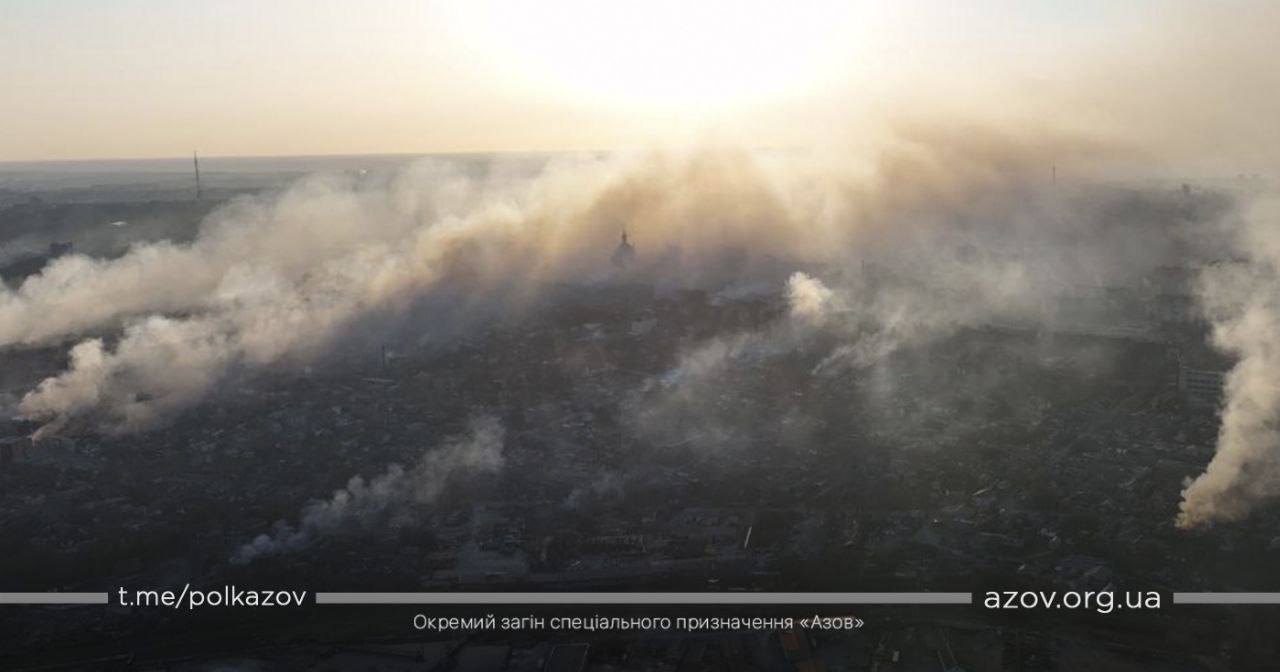
There was an airstrike, but people continued cooking on the street. Because they had no choice. The shelling is not as terrible as hunger. You meet acquaintances with babies born in January-February, pregnant women, some have insulin-dependent relatives, some have cancer relatives. You think it can't be worse. And one day we saw a big fire from the window: a four-entrance nine-story building burned down to the ground.
Then I realized that literally all the buildings in the neighborhood were damaged. And the fact that one missile hit your house once does not mean that it will not hit again.
Drama Theater
The area around the Drama Theater was untouched as if frozen. Yes, there were no windows in the neighboring buildings, but there was still an illusion of security. Even when the plane was flying and people were standing in line for water, no one ran away. It seemed that the Drama Theater was the heart of Mariupol.
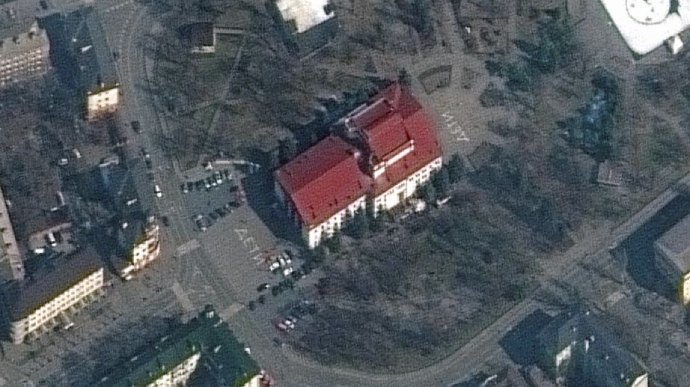
We started coming there when someone in the queue said that there was a mobile network near the Tower. I did receive messages from friends. “Dear Olya, hold on”, “Mariupol residents are real heroes”. Someone managed to reach their relatives for 15 seconds. I never managed to call anyone. But we kept coming there, at least to meet with colleagues and friends. We arranged a kind of a mini headquarters there. It was not possible to come there every day. We stayed at home during the heavy shelling.
It is important to understand that public places like the Drama Theater sheltered people who were first evacuated from nearby villages and towns like Sartana. Then, when the people of Mariupol began to lose their apartments after the Russian shelling, they also came to those large gathering places.
The basement of the Drama Theater was so crowded that people settled on tiers. They lived there with their hamsters, rabbits, parrots, cats, dogs. Imagine, it\'s something like, for example, to make Lviv Opera populated with people.
One day we met an actor – a friend of ours – at the Drama Theater. His two apartments burned down due to the shelling. He told us that he was in the basement and that if we needed to, we could sort out a couple of places. I think there were about one and a half thousand people with children in total.
There were no organized actions in the Drama Theater, no leaders. There was one girl aged 20 to 25, so small and thin. She just started taking care of catering for the residents of the Drama Theater, because the volunteers brought food to such large, crowded centers.
On the night of 15 March, a shell targeted our yard. We lived on the ground floor and were at home at that time. When the shell fell down, we thought we no longer had a home. Later it turned out that the house next to us was hit. That day, we did not go to the Drama Theater as we had decided to get evacuated. And on 16 March, the Drama Theater vanished.
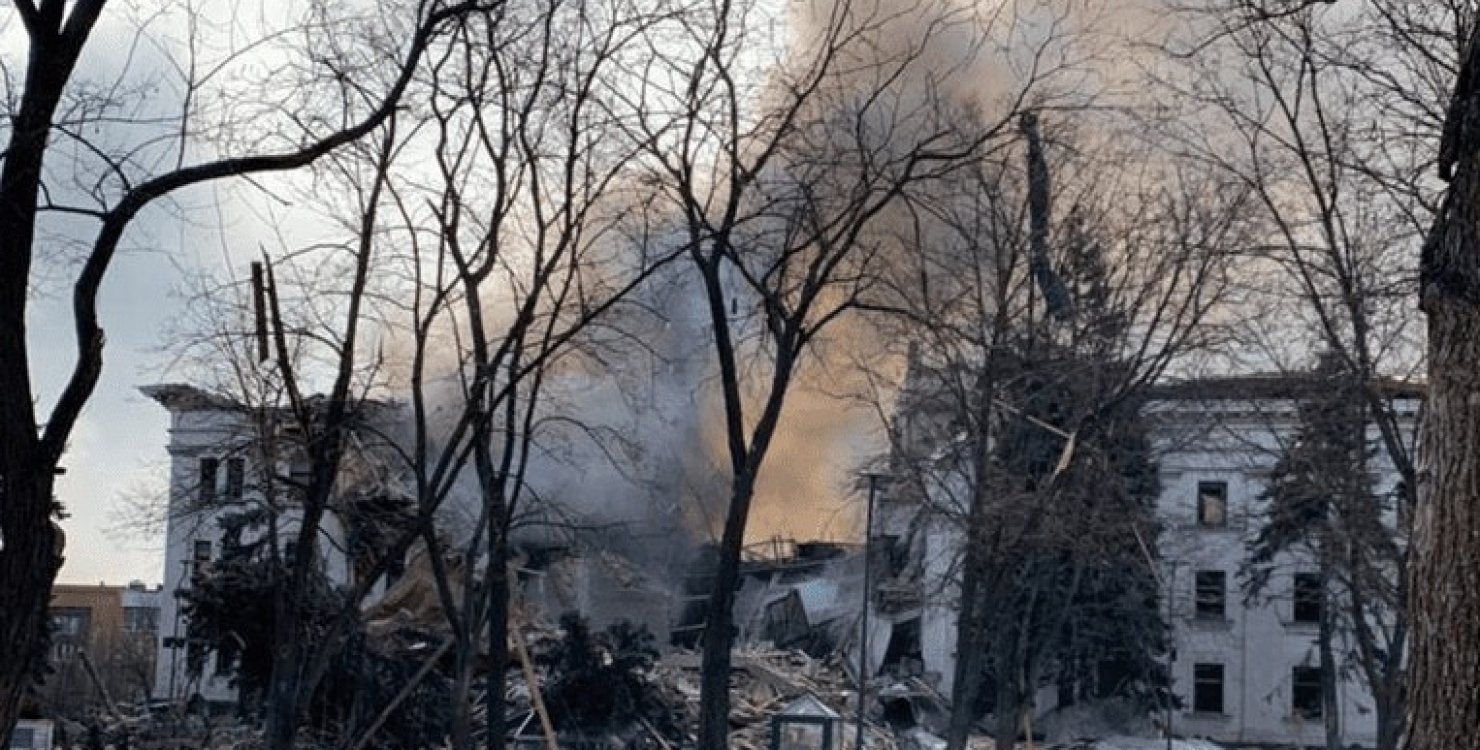
When they hit the Drama Theater, many said that the bomb shelter had survived. But there was no bomb shelter. There was a very weak basement under the stage, that's it. Later we saw in the video the same girl volunteer. She was asked how many people were trapped, she replied, about eight hundred.
Evacuation
While in the city, you are, like a trapped animal, constantly afraid. In the evening, you are grateful for surviving and praying to wake up, and in the morning, you are grateful for waking up and praying to live until the evening. Thoughts are occupied only with survival. Only when you leave the city do you realize what really happened to Mariupol.
On 15 March, our friends somehow managed to catch the mobile network and find out that a green corridor had been opened from Mariupol. Nobody knew exactly which way to go. Friends came to us, we fetched some people without cars, with cats and dogs. Half an hour for packing. I took some food, a bottle of water, a first aid kit, a fire extinguisher. I didn't even take a toothbrush. Dmytro was 99% sure that we would not be able to flee.
Cars along the road stood destroyed by bombs. Corpses lied everywhere. I remembered one scene: a hunting dog was sitting near the bombed-out car, I saw it was a domestic breed, and it was eating the corpse flesh. Pieces of reinforcement and stones were lying everywhere, roads were covered not with pits but just with craters. I've always hated apocalypse movies, but that's what happened to Mariupol.
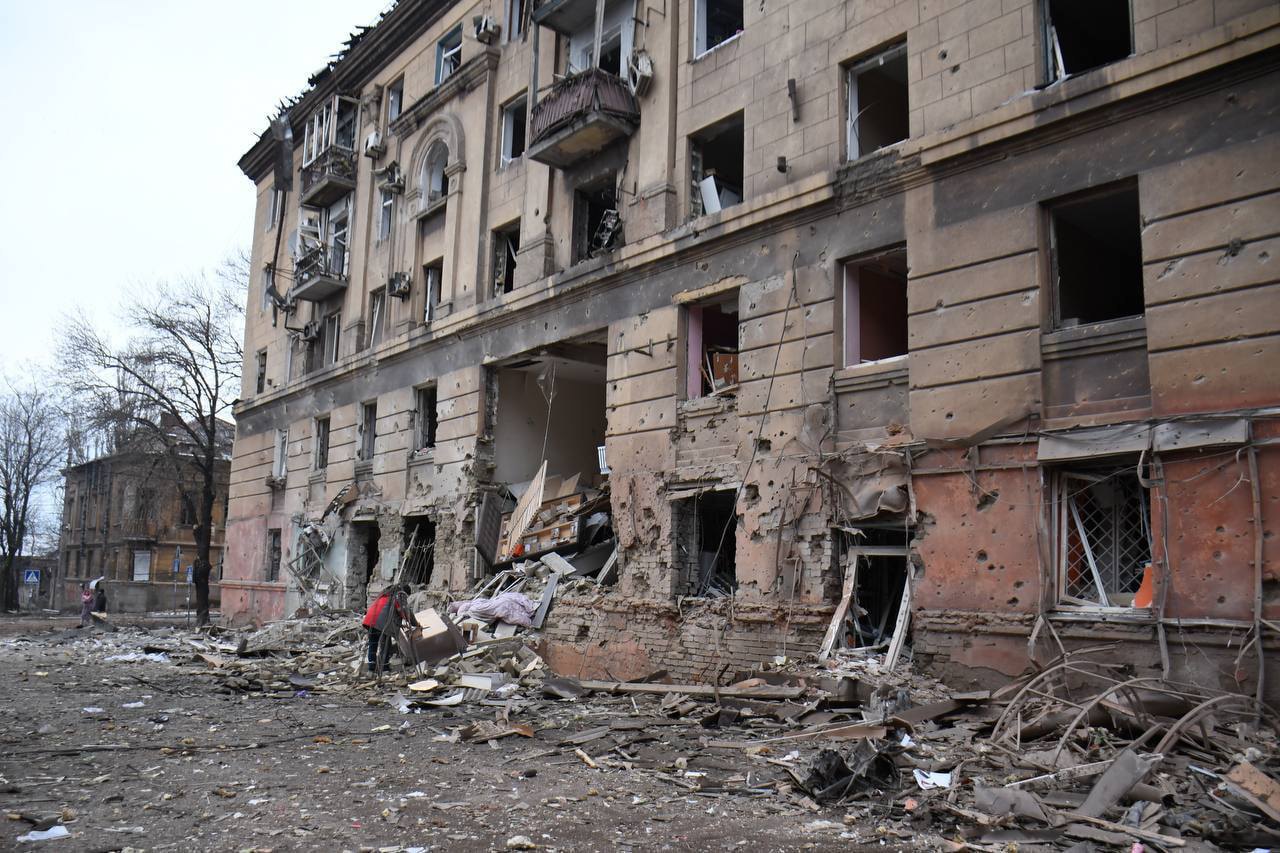
There was no safe area. The shelling was everywhere. We thought that the Prymorsky district, from the seaside, was a safer area. But the Russians had already started shooting there as well. There was a big traffic jam along the sea. We decided not to stand in it but to go around. We had to drive very carefully not to run into a pit, human bodies, or mines.
In the end, we ran into a long row of cars. This was the first self-organized evacuation column from Mariupol to Zaporizhzhia. All cars were tied with white rags with the words “CHILDREN”. Some cars were without window glass. One of our tires became deflated about three times, by 0.8 bar. In that way, we got to Mangush, and then to Zaporizhzhia. By the terrible off-road. If it had rained, we would have got stuck.
Then there was Berdyansk. The Russian checkpoint was guarded by the Buryats. They were more or less judicious. Then there were about thirteen Russian checkpoints with both Kadyrovites and DPR militaries. The latter was pure horror. We were treated like pigs. Stand! Go out! Quickly! They thoroughly examined us stripping down to skivvies. They found a tablet and started checking messengers and chats. But we deleted all history before leaving Mariupol. That was the last checkpoint, and they forced all the cars to scrape off the tinting film from windows. No one could move forward until they scraped it off.
We drove to Berdyansk at night. It was the curfew, and we had no idea what to do then. Some people ran out to meet us. They turned out to be the school staff. We spent the night in the director’s office. There was no heating because the gas supply was cut off, but people gave us food and the opportunity to wash up. Breakfast was served in the morning. We wanted to pay for it, but people refused to take money. They hugged us and cried.
The next day, the SES (State Emergency Service of Ukraine) sent information about the green corridors to Zaporizhzhia. As it turned out later, there was no corridor that day. Due to poor communication, the message was received with a significant delay. But we kept going. We saw broken vehicles, ruined houses along the road. And the road itself is brand new, it was repaired recently.
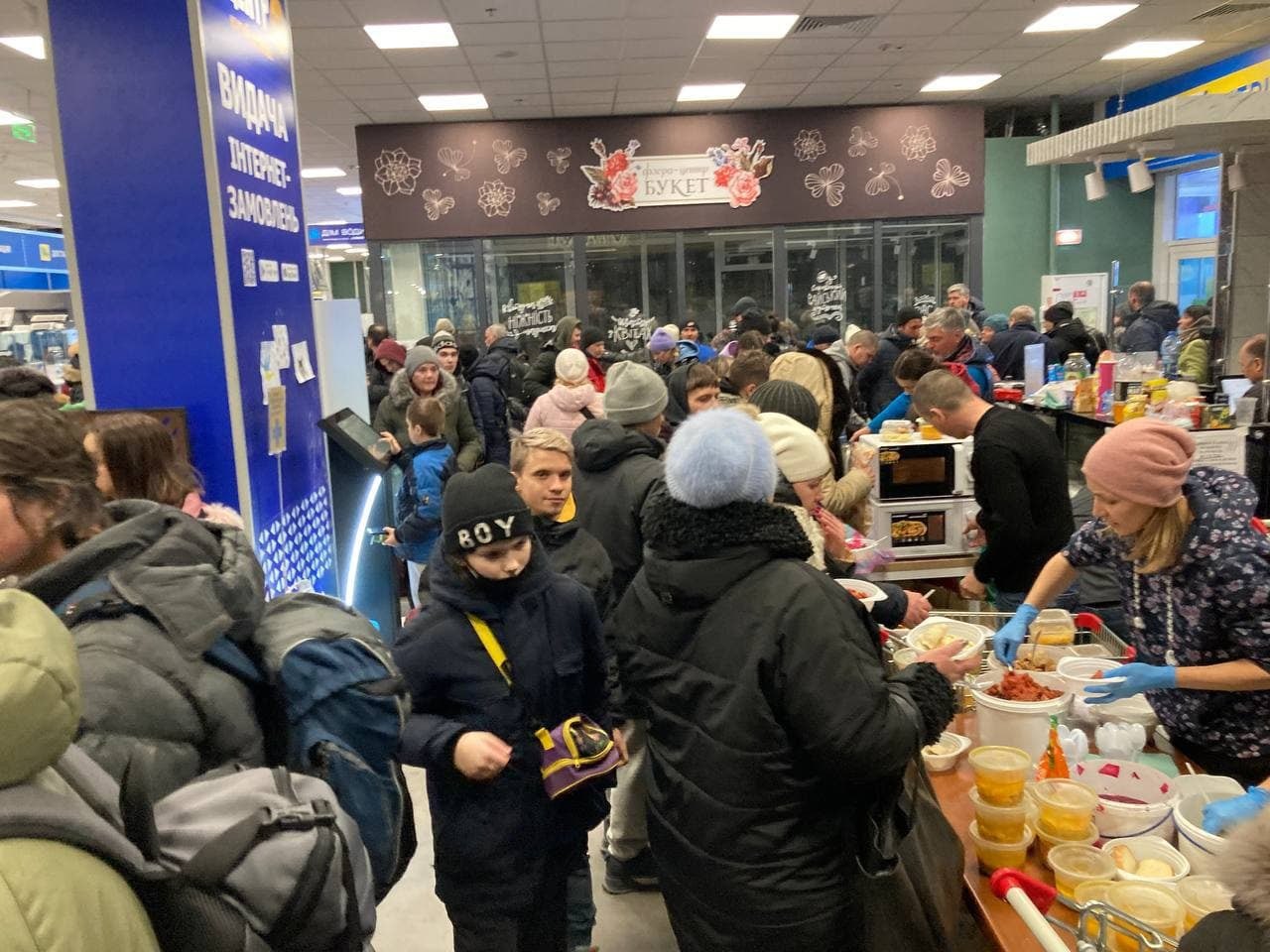
How happy we were when we saw a checkpoint with the Ukrainian flag at the entrance to Zaporizhzhia! There was a queue of cars – six lanes narrowed to one – at the city entrance. This was the only way to enter the city because the bridges were blown up. Everyone was moving very slowly, one kilometer in two hours.
Suddenly the mortar shelling started. Later we read that it was shelling by MLRS ‘Grad’, but we had already learned to distinguish between the sound of ‘Grad’ and mine. All six lanes began to go to the checkpoint at the same time. Cars were struggling, crowding. It was impossible to stop because others drove behind you. You look at the people's faces in cars as there were no cars with tinted windows, and you could see sickened horror. When you walk, at least you could hide, you could fall to the ground. In the car, when you are pushed from all sides, you have no chance to hide. We were just like a herd fleeing predators.
A missile hit the car that stood one car away from ours. A man ran out of it in panic shouting. At the same time, other cars continued moving while shelling proceeded. Ambulance and police arrived at the checkpoint immediately. There were also children in that car.
Later we learned that it was a young family from Sartana that suffered in that shelling. Just imagine that people first fled to Mariupol, and then from Mariupol to Zaporizhzhia.
When we finally arrived at the city, everything was working fine there. Centers for migrants were open, they immediately registered people, asked if they had a place to live if they needed medical care or psychological help, and so on. When my friend Yuliya from Lviv saw that I came in touch, she immediately wrote: “Are you alive? Come to me.”
There was an incredibly warm attitude at all points of the road. People were finding out that we were from Mariupol and immediately offered help. In Zaporizhzhia, we spent a night with good people. In Khmelnytsky, the director of a plant opened his office for us to spend the night. He took us to the store. Then we came there, and we saw a whole ATB (a large supermarket chain)! People brought some more canned food, pasta. Other good people gave us a house room in Khmelnytsky region temporarily. In Ivano-Frankivsk, they constantly brought food and asked what we needed. In Ternopil, the locals were literally catching our car to feed us. It's just an incredible uniting. It seems to me that no one in Europe has had such an experience since World War II.
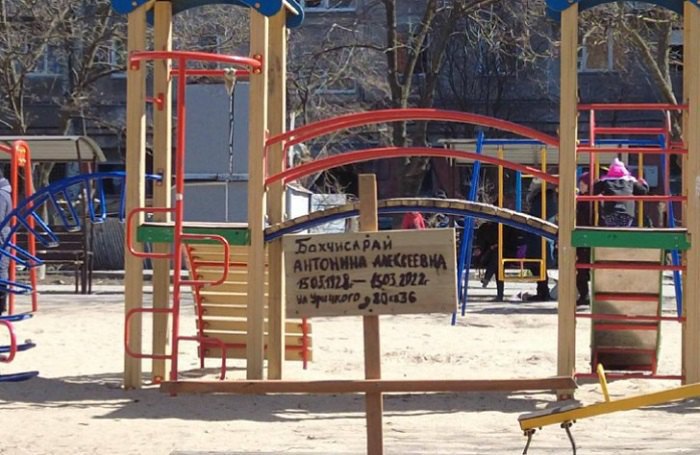
Thereafter
I don’t even want to think how many people died in Mariupol. Of the four hundred students at my school, only twenty contacted me in the common chat, one of the three principals, and only five of the thirty teachers. The last time I saw most of them online was on 28 February or 2 March, depending on when they remained without power supply and network connection. The whole family of one of our employees died. Only one small child survived.
I do not personally know any Mariupol residents who were forcibly deported from the occupied areas of Mariupol to Russia, but this does not mean that there are none. Yes, I heard that people from the fitness center near the Savona cinema, where a shelter was organized for the first evacuees from Sartana and Volnovakha, were taken away by DPR militaries and brought out in an unknown direction. As for the Left Bank of Mariupol, people say that no one was released from there to Russia at all.
No one has seen any “Humanitarian aid from the DPR”. Maybe they brought a couple of trucks to one yard, unloaded potatoes with mayonnaise for the camera, and that's it. People from the occupied areas, with whom we continue to communicate, have not seen any humanitarian aid. Well, imagine one four-entrance building with 35 apartments. Suppose half of the people left. About 280 people are still left somewhere. It's about one truck of aid. This can be organized, but you have to ensure more serious humanitarian aid to supply the needs of the whole area.
The tragedy of Mariupol is difficult to comprehend. We have lost more than just the city. We have lost the future. I think half of Mariupol residents still remain in the city. Four weeks without food and water in the basement. It is impossible to live like that. People need a normal green corridor of several days either to leave the city or to bring food and medicine to Mariupol. Now Mariupol is actually a new Stalingrad. And most importantly, the longer everything drags on, the worse it gets.
My mother stayed in Mariupol. We could not pick her up. When we were leaving, we were far from her. We had to do everything quickly, and we realized that if we are dead and crippled, we could not help my mother. I\'m waiting for the shelling to end and I\'ll go to take her away. Who else can do it?
Volunteers come to take people out, I give them my deepest gratitude for their work. But still, there are many people left in Mariupol. I have a whole list of people who escaped from Mariupol and are ready now to form a convoy of cars and go to pick up their parents, relatives, even abandoned animals from Mariupol. We are only waiting for the shooting to stop.
Yesterday an acquaintance of mine, an employee of the Economics Department of the Mariupol City Council, left the city. The Russians fired at their car on the way out. He called me, speaking in a trembling voice. The children were lying on the floor during the shelling. But the first thing he did when they escaped was call other people to see if they were alive.
I don't think about any plans, about work at all. I constantly communicate in chats, have some talks, and try to help people somehow. And now all people from Mariupol do the same. I advise all relatives, friends, and acquaintances who have someone in Mariupol to send meaningful messages about when and where the evacuation will take place, and how to get help. Messages must be sent every morning. Thanks to them, people have a chance to escape the city.
But what's next? It is clear that now Ukraine is a shield for Europe. But I remember how people from Donetsk came to Mariupol in 2014-2015. There were about eight hundred people in line for preferential housing for migrants. We understood that the construction of such housing is a five-year prospect. And now add Chernihiv, Kharkiv, Hostomel, Bucha, Irpin to the half-million Mariupol.
Of course, I am afraid that many people who have gone to Europe will not return anymore. Many in Ukraine have lost their homes, families, all the anchors that kept people here. They have to start from scratch either in Europe or in Ukraine. That’s why we also need to think about how to bring these people home. How to help business, how to support Ukrainians economically. Because, for example, many people sitting in cafes in Lviv now are not tourists, but migrants. And these people will run out of money. In particular, we need to talk about this with international partners.
Many Mariupol residents are now interested in how the plant and the port are doing now. With God’s help, we will have a Ukrainian city, let the casualties be as low as possible and we will rebuild everything.
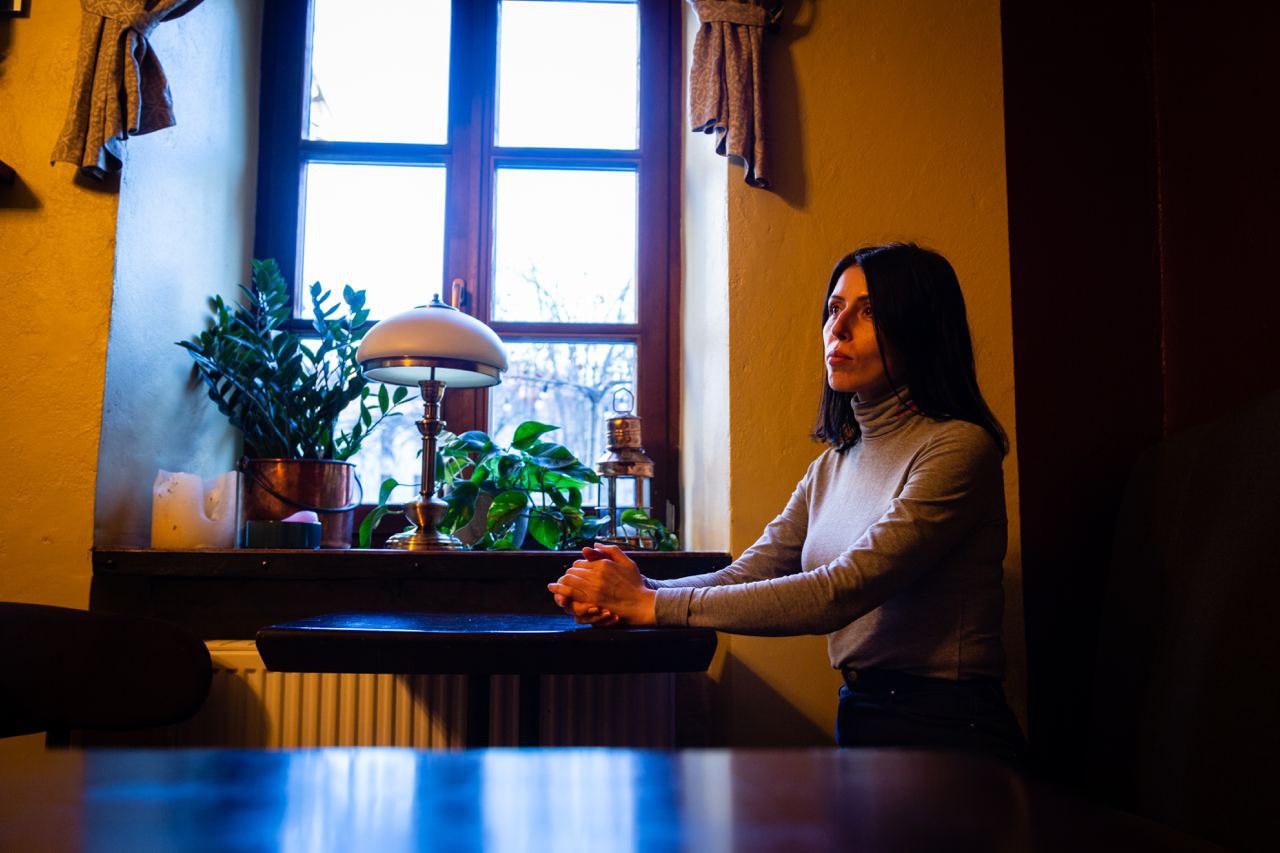
I saw photos of Berlin after the bombings in World War II and Berlin now. These pictures are a little consolation, a hope for the revival of Mariupol. Let’s go and work on a large reconstruction site. If we have to carry bricks, we will carry bricks. May Mariupol remain Ukrainian, and we will rebuild it. And if necessary, we will go to rebuild other Ukrainian cities.








